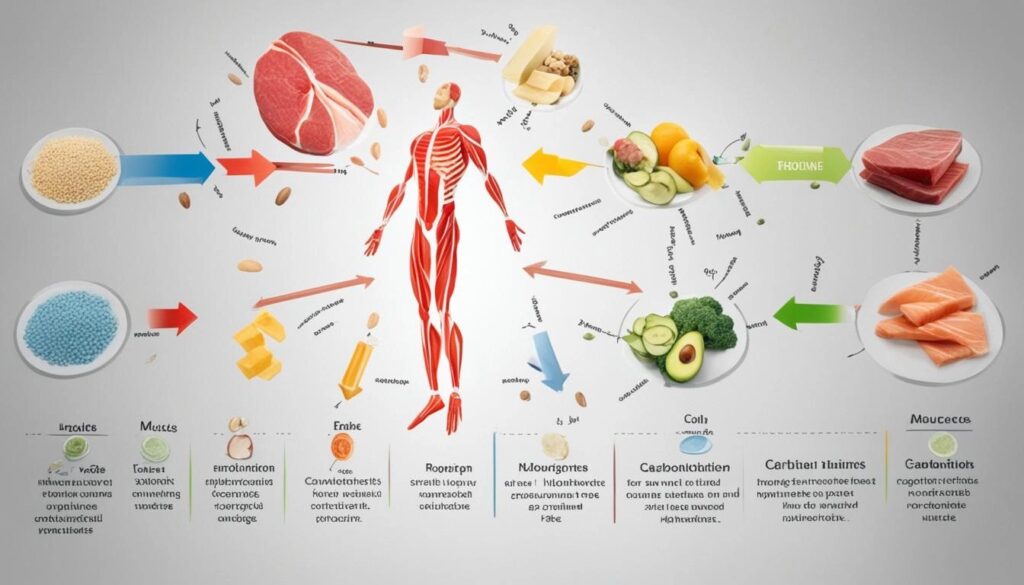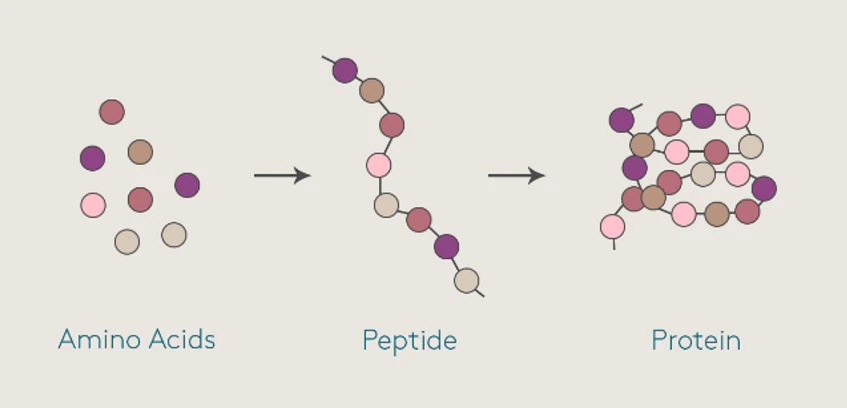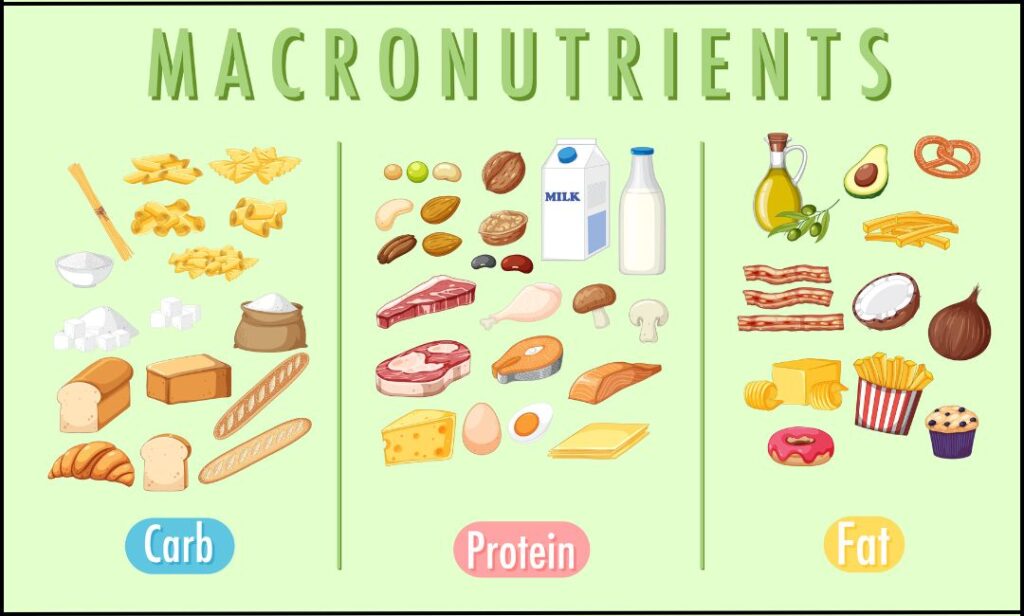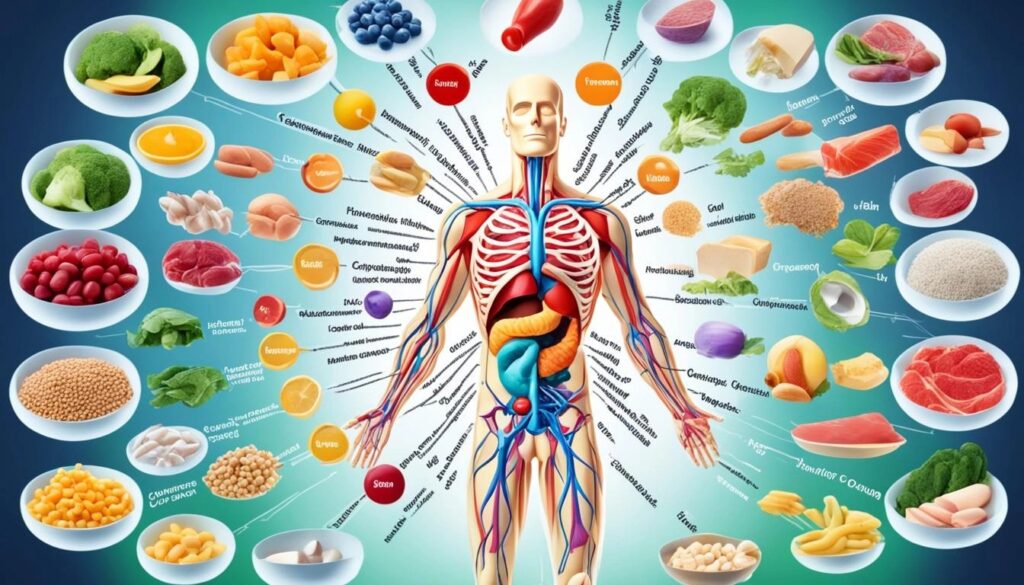The Essential Guide to Macro nutrients and Their Function in Our Bodies

When it comes to understanding nutrition, the concept of macro nutrients plays a crucial role in our overall health and well-being. Macro nutrients are the essential nutrients that our bodies need in large amounts to function properly. In this guide, we will delve into the world of , exploring the roles of carbohydrates, proteins, and fats in our bodies, and how they contribute to our overall health.
Understanding Macro nutrients: A Brief Overview
Macro nutrients serve as the foundational elements that fuel our daily activities and ensure the smooth operation of our bodily functions. Grouped into carbohydrates, proteins, and fats, these nutrients must be consumed in significant amounts due to their pivotal roles in energy provision and physiological processes.
Carbohydrates act as the body’s primary energy source, proteins are integral for tissue repair and growth, and fats support numerous functions including nutrient absorption and cell structure maintenance. Unlike micro nutrients, which are required in smaller quantities, macro nutrients are needed in larger amounts because they provide the calories necessary for energy production. Each of these macro nutrient categories encompasses a range of foods, offering diverse options for achieving a balanced diet.
Their substantial contribution to our energy needs and their involvement in critical biological activities underscore the importance of a diet rich in all three macro nutrients. Proper intake ensures that the body has the necessary resources to perform at its best, highlighting the need for a well-rounded consumption approach that supports health and vitality.
The Power of Carbohydrates: Fuel for Your Body

Carbohydrates serve an indispensable role in our daily energy management. They are metabolry cell in the body, from braised into glucose, the primary fuel that powers even functions to muscular activities. Found in an array of foods such as whole grains, fruits, vegetables, and legumes, carbohydrates are more than just energy providers; they are packed with fibers, vitamins, and minerals that are crucial for overall health.
Opting for complex carbohydrates is a smarter nutritional choice as they offer a steady release of energy, avoiding the rapid spikes in blood sugar levels associated with simple carbohydrates found in processed foods and sugary treats. These complex forms also contribute to digestive health, help manage weight by promoting a feeling of fullness, and support heart health by maintaining lower levels of bad cholesterol.
Emphasizing the intake of carbohydrates from whole, unprocessed sources ensures that the body not only receives the necessary fuel it requires but also benefits from the comprehensive nutritional profile these foods offer. This strategic approach to carbohydrate consumption supports sustained energy levels throughout the day, facilitating both physical and cognitive activities with optimum efficiency.
Proteins: The Building Blocks of Life

Proteins are fundamental to our existence, playing a pivotal role in the construction and repair of tissue throughout the body. Comprising long chains of amino acids, proteins are the structural components of muscles, bones, skin, and hair, essentially acting as the body’s building material. These complex molecules are involved in virtually every bodily function, from the formation of antibodies that defend against infection to the transportation and storage of molecules.
A diverse intake of protein sources is crucial for supplying the body with the full spectrum of essential amino acids it cannot produce on its own. Foods rich in protein include animal products like poultry, beef, fish, and dairy, as well as plant-based options such as beans, lentils, tofu, and nuts. The versatility of protein-containing foods makes it easier to integrate this macro nutrient into various meals and snacks, ensuring a balanced diet.
Beyond their structural role, proteins are key players in hormone regulation and enzyme production, facilitating countless biochemical reactions that are vital for maintaining life. The digestion of proteins yields amino acids that the body repurposes for new protein synthesis, highlighting the continuous cycle of use and replenishment that characterizes this macro nutrient’s role in our health.
For individuals leading an active lifestyle, protein intake becomes even more critical as it aids in the recovery and strengthening of muscle tissues post-exercise. Ensuring adequate protein consumption is not just about quantity but also quality, as it influences muscle mass, strength, and overall physiological resilience.
Fats: Not All Are Created Equal

Fats have long been misunderstood, but they are a crucial component of a nutritious diet, vital for numerous physiological processes. Differentiating between types of fats is key to harnessing their benefits. Unsaturated fats, found in foods like olive oil, fish, nuts, and seeds, are celebrated for their heart-healthy properties. These fats can help to lower bad cholesterol levels and are linked to a reduced risk of heart disease.
On the flip side, saturated fats, present in animal products and certain oils, should be consumed in moderation, as excessive intake is associated with heart disease. Trans fats, often found in processed and fried foods, are particularly detrimental to health, contributing to increased cholesterol levels and a higher risk of heart disease.
Understanding the distinct roles and impacts of these fat types is essential for making informed dietary choices. Incorporating a higher ratio of unsaturated fats into one’s diet, while limiting saturated and avoiding trans fats, aligns with guidelines for a heart-healthy lifestyle.
Fats also play a critical role in absorbing fat-soluble vitamins, such as Vitamins A, D, E, and K, underscoring the importance of including fats in a balanced diet for optimal nutrient utilization and overall health.
Balancing Macro nutrients: The Key to a Healthy Diet

Achieving a balanced diet is pivotal for health and involves harmonizing the intake of carbohydrates, proteins, and fats. This balance is not one-size-fits-all; it varies significantly based on individual lifestyle, activity levels, and health objectives. To navigate this, it is essential to focus on consuming whole foods that are rich in nutrients, as these foods provide the body with a plethora of benefits beyond mere calorie intake.
Incorporating a diverse range of foods from each macro nutrient category ensures that the body receives a comprehensive array of vitamins, minerals, and other nutrients necessary for optimal function. For active individuals, this might mean a higher proportion of proteins and carbohydrates to support muscle repair and energy needs.
Meanwhile, someone with a goal of weight management may focus on a diet lower in processed carbohydrates and higher in healthy fats and proteins to promote satiety and fat metabolism. Adjusting macro nutrient ratios according to personal health goals and responding to the body’s feedback allows for customized nutrition that supports wellness and vitality.
It’s about finding the right mix that fuels your body effectively, ensuring you receive the benefits of each macro nutrient without over or under-consuming any single group.
The Role of Macronutrients in the Body: A Closer Look

Delving into the distinct functions of each macro nutrient reveals their indispensable roles in sustaining health. Carbohydrates, as the body’s main source of fuel, are paramount for maintaining energy levels critical for both mental and physical activities. They are broken down into glucose, feeding our cells and supporting brain function. Proteins go beyond their well-known function of building and repairing tissues; they are also crucial for the production of hormones and enzymes, playing a vital role in the regulation of bodily processes.
Every movement, thought, and breath relies on enzymes and hormones, making proteins fundamental for life’s continuity. Fats, often viewed through a lens of caution, are essential for the integrity of cell membranes, providing a protective barrier and facilitating communication between cells. Their role in absorbing fat-soluble vitamins underscores their importance in ensuring that our bodies can utilize these vital nutrients effectively.
Furthermore, fats are involved in long-term energy storage, offering a reserve when other energy sources are low. Understanding the multifaceted roles of these macro nutrients underscores their significance beyond mere calorie sources. They are the bedrock upon which our bodies perform a symphony of tasks, from the microscopic level of cellular function to the holistic level of maintaining overall health and vitality.
Conclusion: Incorporating Macro nutrients into Your Diet
Embracing a diet that includes a healthy balance of macro nutrients is key to nurturing your body and enhancing your health. Opt for whole, unprocessed foods rich in nutrients to maximize the benefits of carbohydrates, proteins, and fats.
These foods not only supply the energy your body craves but also the essential building blocks it requires to function optimally. Steer clear of refined and overly processed options that may compromise your nutritional intake. It’s vital to adjust your diet according to your unique health goals and lifestyle needs, recognizing that the perfect balance of macro nutrients can differ from one individual to another. Paying attention to how your body responds to various foods and macro nutrient ratios is crucial for tailoring a diet that best supports your well-being.
Whether your focus is on boosting energy, repairing and building muscle, or managing weight, a mindful approach to incorporating a diverse range of macro nutrients can pave the way for improved health and vitality. Allow yourself the flexibility to fine-tune your diet, ensuring it aligns with your body’s demands and your personal health aspirations.



